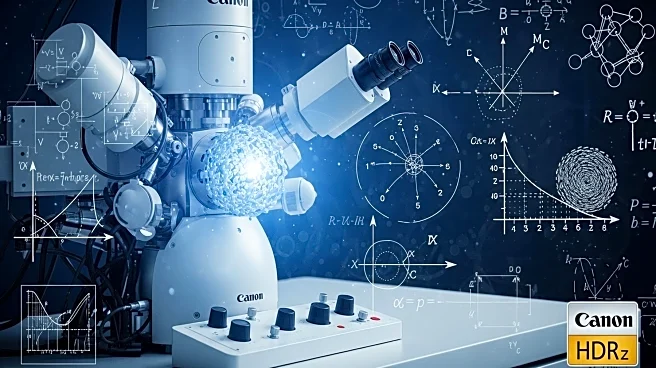What is the story about?
What's Happening?
Researchers from the University of Minnesota Twin Cities College of Science and Engineering and the University of Houston have made a groundbreaking discovery in the field of catalysis. They have successfully measured a tiny fraction of an electron that plays a crucial role in catalytic manufacturing. This discovery, published in ACS Central Science, sheds light on why precious metals like gold, silver, and platinum are effective catalysts. Catalysts are substances that lower the energy required for chemical reactions, enhancing yield, speed, and efficiency in manufacturing processes. The research team developed a technique called Isopotential Electron Titration (IET) to measure electron sharing between molecules and catalytic metals, providing a clearer understanding of molecular behavior on catalyst surfaces.
Why It's Important?
The ability to measure electron fractions at such small scales is significant for the chemical industry, which relies heavily on catalysts for efficient production. This discovery could lead to the development of next-generation catalytic materials, potentially reducing production costs for fuels, chemicals, and materials. The research offers a new scientific foundation for understanding catalysts, which could drive advancements in energy technologies over the coming decades. Industries such as pharmaceuticals, battery production, and petrochemicals stand to benefit from improved catalysts that enhance manufacturing efficiency and reduce costs.
What's Next?
The new measurement method, IET, provides a tangible description of surface bonding at catalytically relevant conditions, allowing researchers to screen and discover ideal catalytic substances more quickly. This could accelerate the development of new catalytic technologies for industry, supported by fundamental research. The discovery of fractional electron distribution is expected to drive new energy technologies, with potential applications in various sectors. Researchers will continue to explore the implications of this discovery, aiming to develop catalysts that work faster and are easier to control.
Beyond the Headlines
The discovery highlights the importance of basic research in advancing industrial technologies. By understanding the precise electron sharing between molecules and catalysts, researchers can design more efficient catalytic processes. This could lead to significant advancements in sustainable energy solutions and environmental technologies, addressing global challenges such as climate change and resource scarcity.















